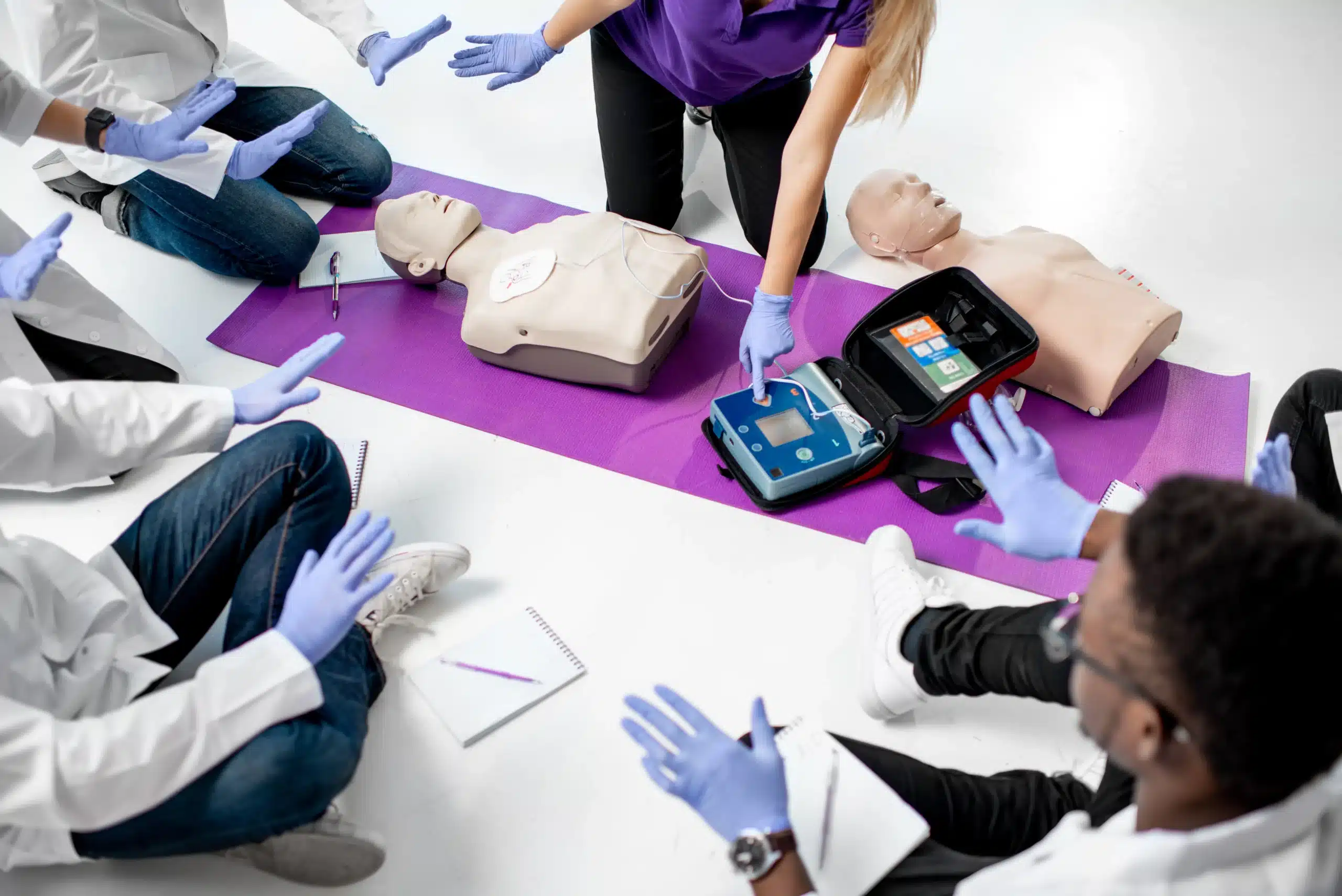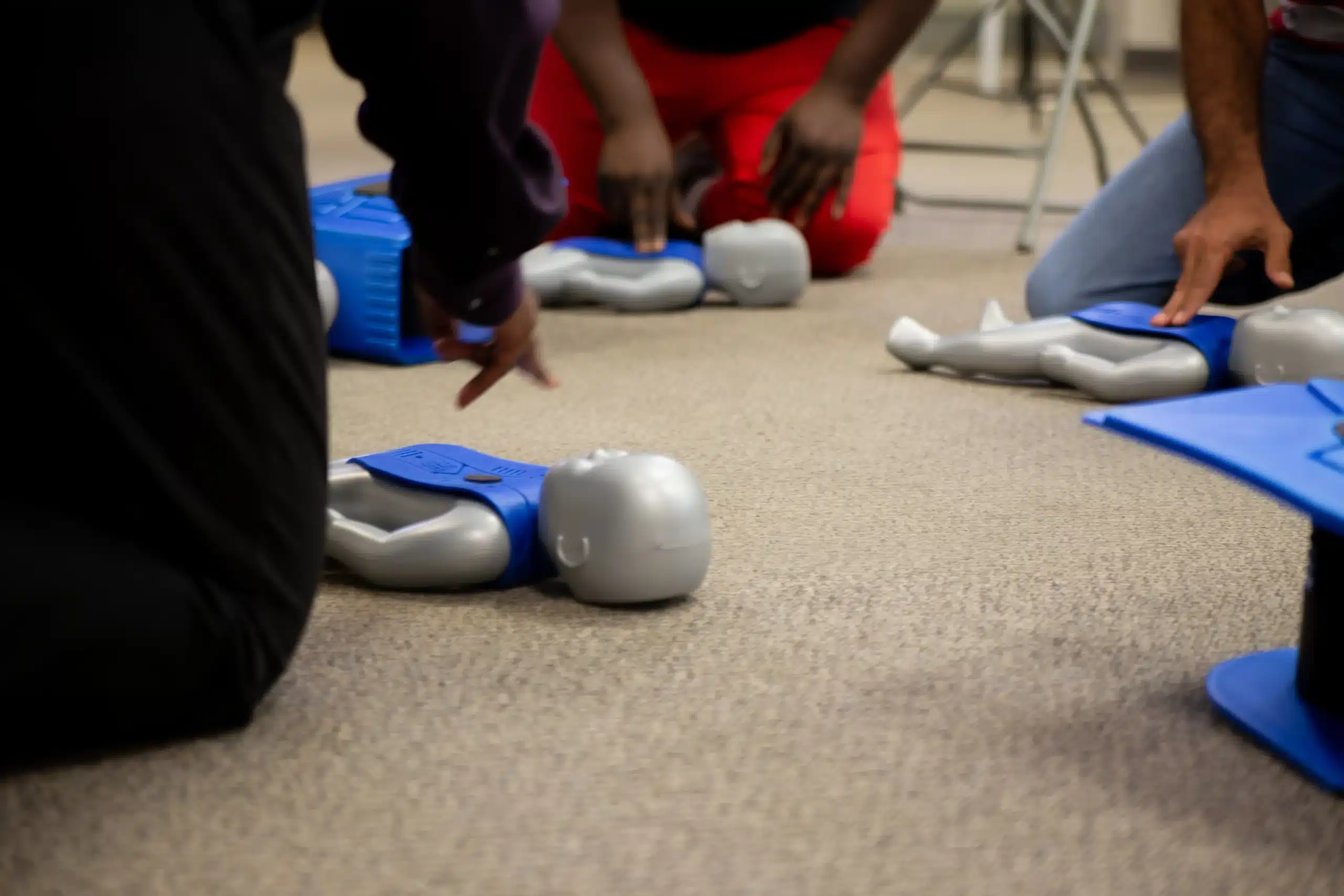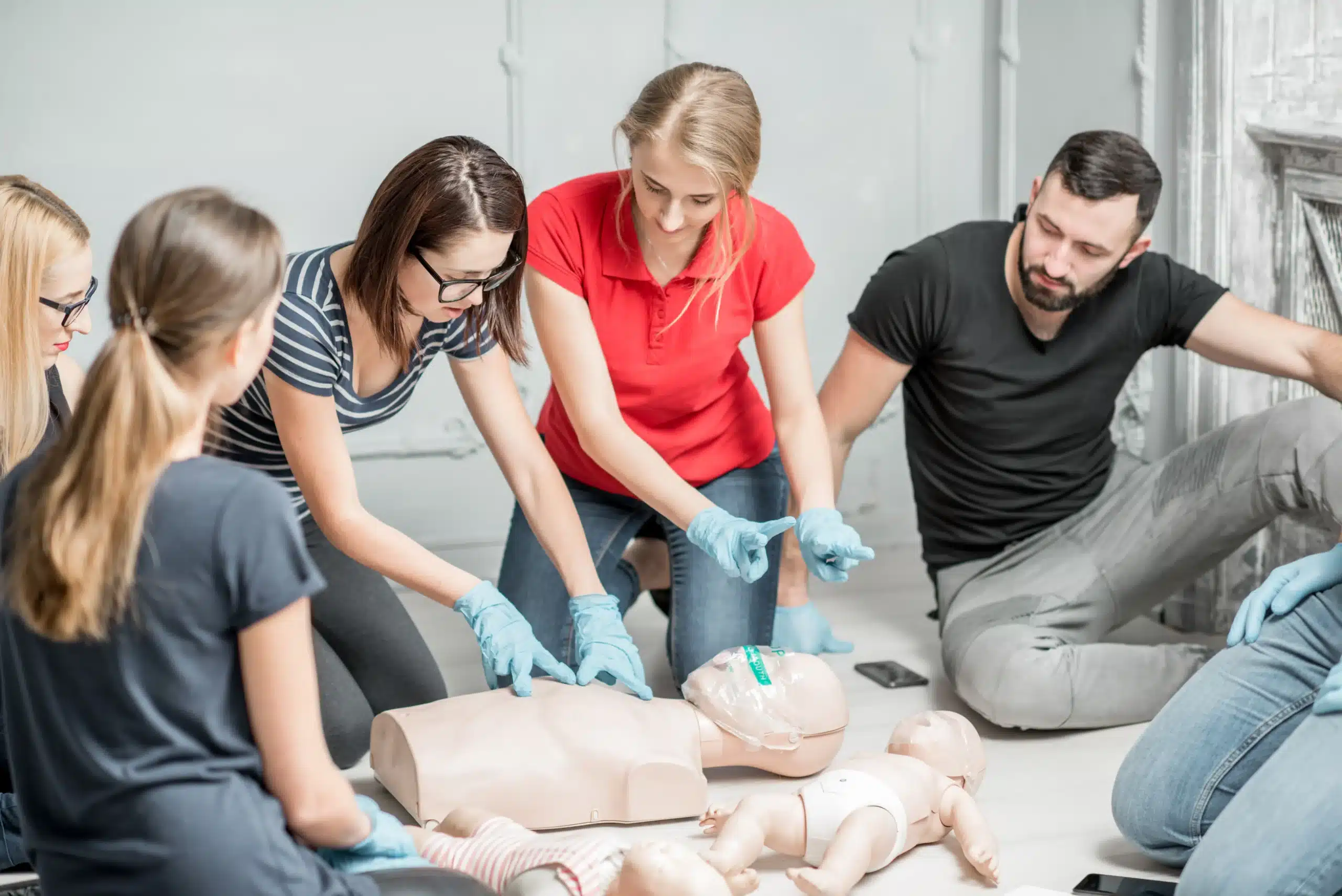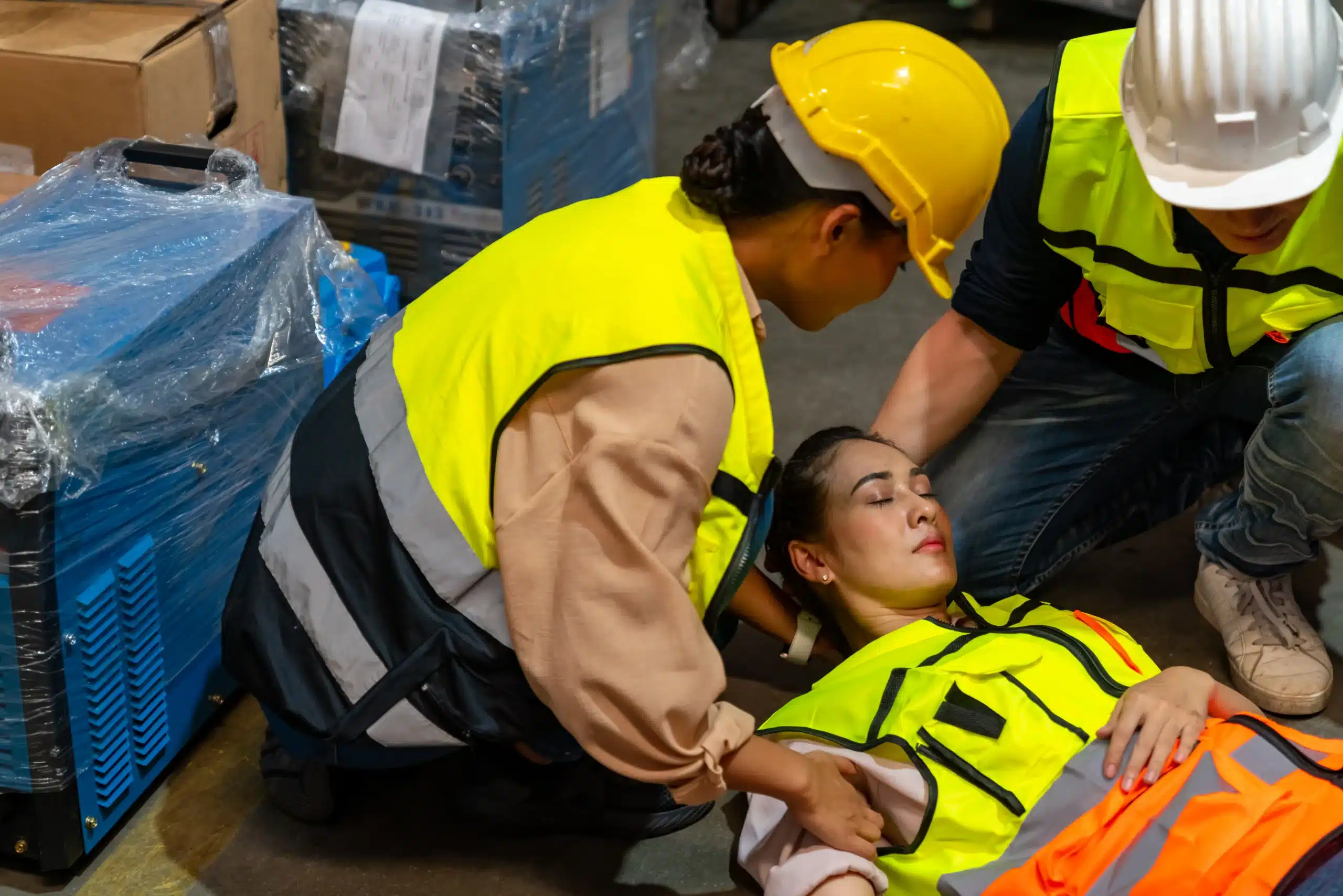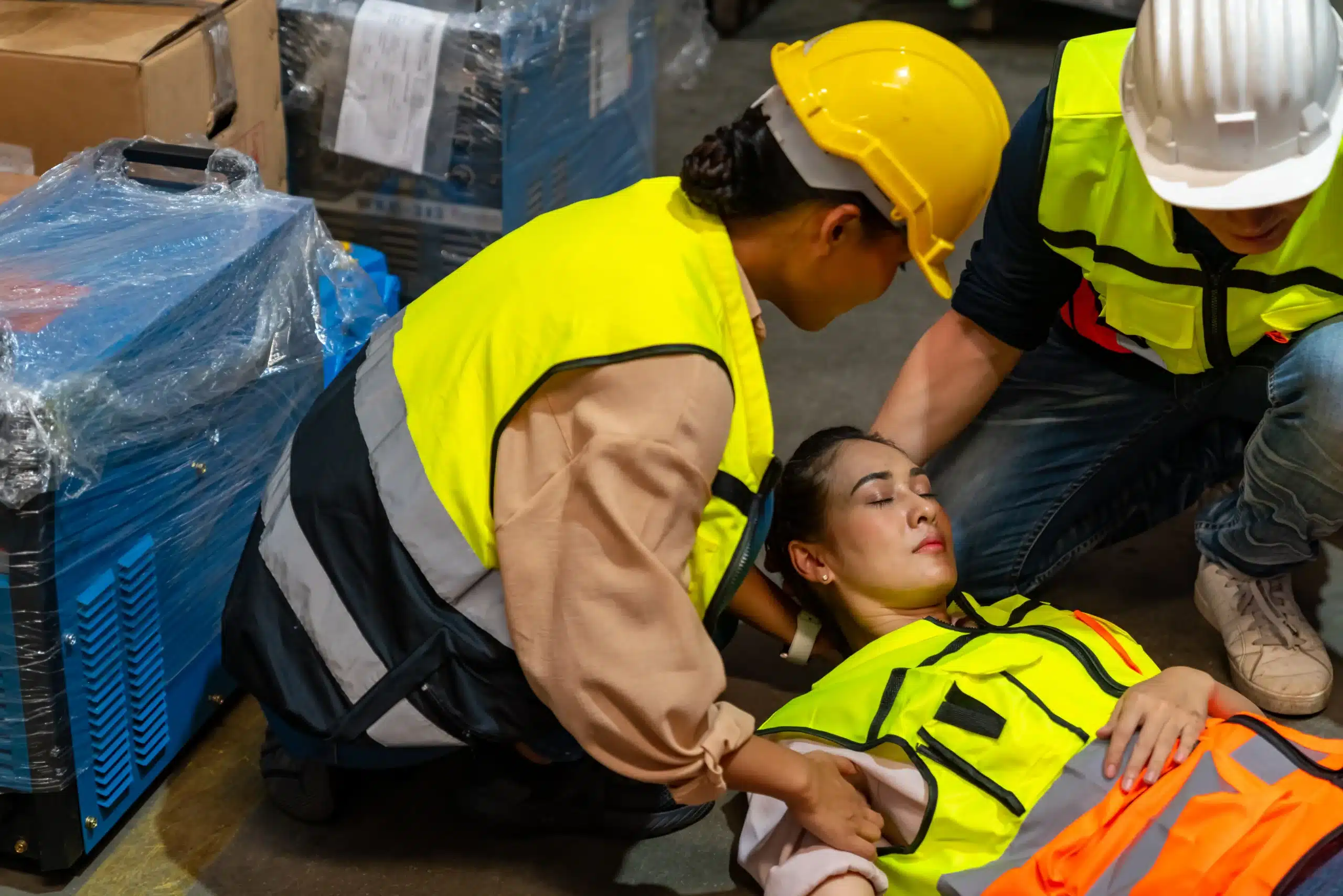Working with newborns is a privilege, but it also comes with a unique set of responsibilities. Ensuring you’re prepared for any emergency is paramount. That’s where the Neonatal Resuscitation Program (NRP) comes in. If you’re a healthcare provider in Berkeley, Alameda, or Oakland, NRP certification is more than just a credential—it’s a testament to your dedication to providing the highest quality of care. This specialized training equips you with the knowledge and skills to handle neonatal emergencies confidently, ultimately leading to improved patient outcomes. In this article, we’ll explore the ins and outs of NRP in Berkeley, covering everything from the basics of the program to the benefits it offers your career. Whether you’re just starting your research or ready to register for a course, this guide will provide valuable insights into NRP certification in Berkeley.
Key Takeaways
- NRP Certification Improves Newborn Care: This training provides healthcare professionals with the essential skills to respond to newborn emergencies, leading to better patient outcomes and demonstrating a commitment to quality care. Berkeley CPR Classes offers accessible training in convenient formats.
- Prepare for NRP Training: Review pre-course materials, understand the training process, and get ready to apply your skills under pressure. Connect with local study groups or online communities for additional support and resources.
- Stay Current with NRP Guidelines: Maintain your certification by renewing every two years and staying informed about the latest updates. Explore additional learning materials to enhance your expertise and provide the best possible care.
What is NRP Certification in Berkeley?
Neonatal Resuscitation Program (NRP) certification is a specialized training program designed to equip healthcare professionals with the skills to resuscitate and stabilize newborns. If you’re a nurse, doctor, respiratory therapist, or other healthcare provider working with newborns in Berkeley, Alameda, or Oakland, NRP certification shows your commitment to providing excellent care. It means you’ve received comprehensive training and have the expertise to handle newborn emergencies. Berkeley CPR Classes offers this vital training, empowering healthcare professionals to confidently respond to critical situations and improve patient outcomes.
What is NRP and Why is it Important?
NRP certification is crucial for healthcare professionals involved in newborn care. It provides evidence-based guidelines and practical skills to manage respiratory and cardiovascular emergencies in newborns. This training gives healthcare providers confidence and competence, enabling them to quickly assess and stabilize newborns needing intervention. Ultimately, NRP certification contributes to better patient outcomes and reduces the risk of complications after birth. The program emphasizes a team-based approach, fostering communication and collaboration among healthcare professionals during resuscitation. By adhering to the latest NRP guidelines, healthcare providers can ensure they are delivering the most current and effective care to newborns.
Essential NRP Skills and Knowledge
NRP certification covers essential skills and knowledge, including initial assessment of the newborn, airway management, positive-pressure ventilation, chest compressions, and medication administration. The program combines online learning with hands-on practice, allowing participants to develop both theoretical and practical skills. Typically, the online portion takes 3–5 hours, followed by a 2–3 hour in-person skills session. You’ll need to complete the in-person portion within 90 days of finishing the online modules. NRP courses often use simulations and case studies to reinforce learning and prepare participants for real-world situations. This blended learning approach ensures healthcare professionals gain the proficiency to apply NRP principles in clinical practice.
Get NRP Certified in Berkeley
Training Formats: In-Person and Blended Learning
NRP certification equips healthcare providers with essential skills to resuscitate and stabilize newborns. You’ll learn to manage emergencies and confidently intervene when a newborn requires support. Berkeley CPR Classes offers two main training formats: fully in-person classes and blended learning. Blended learning combines online coursework with in-person skills practice. This flexible option allows you to study online at your own pace and then demonstrate your skills in a hands-on session. In-person NRP training offers a more traditional classroom learning experience.
Cost, Duration, and Class Schedules
In Berkeley, NRP certification typically costs between $95 and $105, depending on the training format and provider. This fee covers approximately three hours of online learning and three hours of hands-on skills testing at your chosen location. With roughly 16 NRP classes offered monthly in the Bay Area, you’ll find a time that fits your schedule. See our website for details about our low price guarantee.
Register for NRP Certification
Choosing the right NRP course is crucial for healthcare providers in Berkeley. Staying current with your NRP certification ensures you’re prepared to handle neonatal emergencies and provide optimal care. Register for an NRP class today to advance your skills. We also offer discount group classes.
Prepare for NRP Certification
Getting ready for your NRP certification involves understanding the pre-course work, knowing what to expect during training, and preparing for common challenges. Let’s break down each of these steps to help you feel confident and prepared.
Pre-Course Resources
Many healthcare providers find it helpful to refresh their BLS and CPR skills before starting NRP training. This foundation can make learning the NRP protocols easier. You can find more information on BLS certification on our American Heart Association BLS page. Familiarizing yourself with neonatal resuscitation guidelines beforehand is also helpful.
What to Expect During Training
NRP certification equips you with essential skills to manage newborn emergencies. The training covers a range of topics, from basic resuscitation techniques to advanced life support procedures. You’ll learn how to assess a newborn’s condition, perform effective interventions, and work as part of a team. This comprehensive training builds both your knowledge and confidence in stabilizing newborns who require intervention, ultimately leading to improved patient outcomes. Plus, NRP certification is a valuable asset for your career, demonstrating your commitment to high-quality neonatal care and opening doors to specialized roles and advancement opportunities.
Overcome Common Challenges
Even with thorough training, applying NRP guidelines in real-world situations can present challenges. It’s common to have questions about specific scenarios or how to adapt procedures to different circumstances. Our instructors at Berkeley CPR Classes are experienced healthcare professionals who can address these common questions and challenges, providing practical guidance and support. We encourage you to take advantage of our low price guarantee and explore our discount group classes to make training more accessible. We also offer RQI classes to help you maintain and refine your resuscitation skills. With the right preparation and ongoing support, you can master the skills needed to provide effective care to newborns in need.
Master NRP Course Content
Theory and Hands-On Skills
NRP certification equips healthcare providers with essential knowledge and hands-on skills to effectively resuscitate newborns. You’ll learn the critical steps, from initial assessment and airway management to chest compressions and medication administration. This training provides the knowledge and confidence to manage emergencies and stabilize newborns requiring intervention, ultimately leading to improved patient outcomes. Developing proficiency in these skills is crucial for any healthcare professional involved in newborn care. NRP certification is a must-have for anyone involved in this field, giving you the training to handle emergencies effectively.
Simulations and Teamwork
The NRP course emphasizes teamwork and communication during resuscitation scenarios. Through realistic simulations, participants practice their skills in a controlled environment, learning to work together seamlessly under pressure. These simulations reinforce the theoretical knowledge and allow participants to apply their skills in dynamic, real-world scenarios. The core objective of the program is to impart hands-on skills that prepare medical personnel for real-life neonatal emergencies. Effective teamwork31069-4/fulltext) and clear communication are vital for successful newborn resuscitation, and the NRP course provides ample opportunities to develop these non-technical skills. This focus prepares healthcare providers to confidently manage real-life emergencies and provide the best possible care for newborns.
Renew Your NRP Certification
Keeping your NRP certification current is crucial for providing the best neonatal care. Regular renewal ensures you’re up-to-date on the latest guidelines and best practices in resuscitation techniques.
Renewal Requirements and Timeline
NRP certification is valid for two years. To maintain your credentials, you’ll need to complete a renewal course before your current certification expires. The American Heart Association provides the most current renewal guidelines. Planning ahead and scheduling your renewal course in advance helps avoid any lapses in your certification.
Stay Updated on NRP Guidelines
Neonatal resuscitation is a constantly evolving field. Staying informed about the latest NRP guidelines is essential for providing effective and safe care to newborns. Regular updates to these guidelines reflect advances in research and best practices, ensuring healthcare professionals have the most current knowledge and skills. Resources like those available from Alameda CPR classes and Oakland CPR classes offer valuable insights into these updates. Review updated algorithms and incorporate new techniques to enhance your proficiency in neonatal resuscitation. Participating in continuing education opportunities and staying connected with professional organizations can also help you stay at the forefront of neonatal care. This commitment to ongoing learning benefits both you and the newborns you care for.
Choose the Right NRP Training in Berkeley
Accreditation and Instructor Qualifications
NRP certification is essential for anyone involved in newborn care. It provides the knowledge and confidence to manage emergencies and stabilize newborns, ultimately leading to improved patient outcomes. When selecting an NRP course, make sure it’s accredited by a recognized body like the American Heart Association. This ensures the program meets established standards and covers the latest guidelines. Instructor qualifications are equally important. Look for certified instructors with a strong background in neonatal resuscitation. Their expertise will give you the best learning experience. Choosing a program tailored to Berkeley’s context is also important, as local practices may influence training. NRP recertification courses offer healthcare professionals a chance to refresh their knowledge and stay up-to-date.
Berkeley CPR Classes: Your Local Experts
For Berkeley healthcare providers, choosing the right NRP course is crucial. Berkeley CPR Classes offers NRP certification focused on preparing you for neonatal emergencies. Our courses use hands-on training and simulations, allowing you to practice your skills in a safe environment. We tailor our training to the specific needs of healthcare professionals in Berkeley. Our NRP recertification courses provide a chance to update your knowledge and demonstrate competency in the latest techniques. With our low price guarantee and focus on customer service, you can rely on us for affordable, high-quality NRP training. We also offer discount group classes.
Benefits of NRP Certification
Earning your NRP certification is a big step, so it’s important to understand its value. This certification offers a powerful combination of improved patient care and expanded career opportunities.
Improve Patient Outcomes and Advance Your Career
NRP certification equips healthcare providers with the skills to handle neonatal emergencies. This specialized training builds confidence and competence in stabilizing newborns who need immediate help. The result? Improved patient outcomes and a higher quality of care. It also shows a commitment to excellence, which can help you advance in your current role. If you’re thinking about specializing in neonatal care, NRP certification is often required. Alameda CPR Classes offers further information on NRP Certification in Berkeley.
Career Opportunities in Neonatal Care
In a competitive field like healthcare, NRP certification makes you stand out. It’s a valuable asset that opens doors to specialized roles and career advancement. Whether you’re a nurse, doctor, or another type of healthcare professional, this credential shows your dedication to providing top-notch neonatal care. Oakland CPR Classes offers a helpful guide to NRP certification in Berkeley. Choosing the right NRP course matters, so pick a program, like the one at Berkeley CPR Classes, that fits your career goals. This specialized training is essential for any healthcare provider involved in newborn care, making sure they have the skills to resuscitate and stabilize newborns. You can learn more about NRP Certification in Berkeley from Alameda CPR Classes.
Apply NRP Skills in Healthcare
Use NRP Skills in Real-World Situations
Healthcare professionals with NRP certification develop a deep understanding of the steps needed to resuscitate a newborn in distress. This training empowers them to confidently apply these guidelines in real-life situations, ensuring they can respond effectively to neonatal emergencies. From assessing the infant’s condition and providing respiratory support to administering medications and performing chest compressions, NRP-certified professionals are equipped to handle a range of critical scenarios. This preparedness translates to improved outcomes for newborns and increased confidence among healthcare teams.
Manage Challenges in High-Stress Environments
One of the biggest challenges in neonatal resuscitation is managing the high-stress environment that often accompanies these emergencies. NRP training not only equips healthcare providers with the technical skills, but also cultivates the non-technical skills crucial for effective teamwork and decision-making under pressure. These non-technical skills—including task management, situational awareness, and clear communication—are honed through realistic simulations and scenario-based training. This training helps bridge the gap between classroom knowledge and practical execution, enabling healthcare professionals to remain calm, focused, and efficient, even in the most demanding situations. Research highlights31069-4/fulltext) the importance of NRP training in developing these critical non-technical skills, especially in resource-limited settings. By mastering these skills, healthcare providers can confidently manage the challenges inherent in high-stress neonatal emergencies and deliver the best possible care.
Find NRP Support and Resources
Local Study Groups and Online Communities
Connecting with fellow healthcare providers in Berkeley creates a valuable support system as you pursue NRP certification. Consider joining local study groups or online communities focused on NRP training. These platforms offer networking opportunities, allow you to share experiences, and facilitate discussions about best practices in neonatal resuscitation. Many healthcare providers find that completing their BLS and CPR certifications is a helpful first step before pursuing more specialized training like NRP. This foundation can make the NRP coursework more manageable.
Additional Learning Materials
Beyond your formal NRP training, a wealth of resources can deepen your understanding and skill set. Explore textbooks, articles, and online materials that cover neonatal resuscitation. Look for resources that incorporate innovative techniques and the latest research, ensuring your knowledge remains current. This ongoing learning will boost your confidence and enhance your ability to provide effective care, ultimately leading to improved patient outcomes.
NRP FAQs in Berkeley
Have questions about getting your NRP certification in Berkeley? We’ve compiled answers to some frequently asked questions to help you get started.
What is NRP Certification?
NRP certification is a vital credential for healthcare professionals entrusted with the care of newborns. It signifies your expertise in neonatal resuscitation, equipping you to respond effectively to emergencies and provide the best possible care. This certification demonstrates a commitment to the highest standards of neonatal care. For a deeper dive, check out this helpful guide to NRP Certification.
How long is NRP certification valid?
Your NRP certification is valid for two years. To maintain your skills and stay current with advancements in neonatal resuscitation, renewal is required every two years.
How much does NRP certification cost in Berkeley?
The cost of NRP certification typically ranges from $95 to $105. This price can vary slightly depending on the training provider and the course format (blended learning or in-person). Check with specific providers, like Berkeley CPR Classes, for their most up-to-date pricing. We also offer a low price guarantee.
What does the NRP course involve?
NRP certification involves a combination of online learning and hands-on skills practice. The online portion usually takes 3–5 hours to complete, followed by a 2–3 hour in-person session. You’ll need to complete the in-person portion within 90 days of finishing the online modules. This blended learning approach offers flexibility while ensuring you gain practical experience. You can find more details on NRP course structure from various resources.
How often are NRP courses offered in Berkeley?
NRP classes are readily available in Berkeley, with roughly 16 sessions offered monthly. This frequent scheduling makes it easy for healthcare providers to find a class that fits their schedules. Check with local providers or see our class schedule for upcoming courses.
What are the advantages of becoming NRP certified?
Earning your NRP certification offers several benefits. It enhances your career prospects by showcasing your specialized skills and empowers you to deliver better care to newborns in critical situations. This certification can significantly advance your professional development and contribute to improved patient outcomes. Learn more about the overall benefits of NRP certification.
Related Articles
- NRP Certification Classes in Berkeley, CA – Berkeley CPR Classes
- RQI Classes in Berkeley, CA – Berkeley CPR Classes
- CPR Certification in Berkeley: Your Complete Guide – Berkeley CPR Classes
- CPR Classes in Berkeley: Your Certification Guide – Berkeley CPR Classes
- CPR Courses in Berkeley: The Complete Guide – Berkeley CPR Classes
Frequently Asked Questions
What does NRP certification entail?
NRP certification involves a blended learning approach, combining online coursework with in-person skills practice. The online modules typically take 3–5 hours to complete, and the in-person skills session lasts 2–3 hours. You’ll need to finish the in-person training within 90 days of completing the online portion. This combination of online learning and hands-on practice ensures you develop both the knowledge and practical skills necessary for neonatal resuscitation.
How often are NRP classes held in Berkeley?
With approximately 16 NRP classes offered monthly in the Bay Area, finding a convenient time for your training shouldn’t be a problem. Check the Berkeley CPR Classes website for the most up-to-date schedule and to find a class that fits your availability.
What’s the typical cost of NRP certification in Berkeley?
NRP certification in Berkeley usually costs between $95 and $105, depending on the training format and provider. This fee covers both the online learning materials and the in-person skills evaluation. Berkeley CPR Classes also offers a low price guarantee, so you can be confident you’re getting a competitive rate.
Why is NRP certification important for healthcare providers?
NRP certification is essential for healthcare professionals involved in newborn care. It provides the knowledge and skills to effectively manage respiratory and cardiovascular emergencies in newborns, ultimately leading to improved patient outcomes. This specialized training demonstrates your commitment to providing high-quality care and can open doors to career advancement.
How can I prepare for my NRP certification course?
Refreshing your BLS and CPR skills before starting NRP training can be beneficial. Familiarizing yourself with neonatal resuscitation guidelines will also give you a head start. Many resources are available online and through organizations like the American Heart Association to help you prepare.


